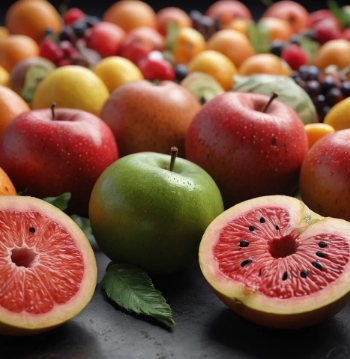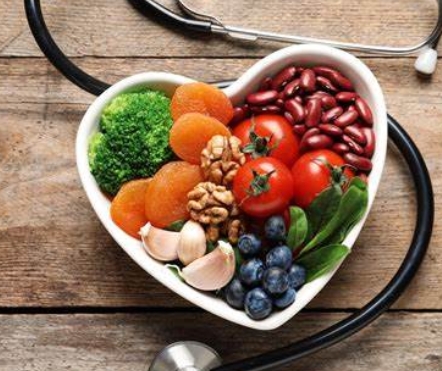We all know that drinking water is important, but many people overlook just how crucial hydration is for overall health. Water is the most essential nutrient our body needs to function properly. It makes up around 60% of our body weight and plays a role in nearly every bodily function, from digestion and nutrient absorption to temperature regulation and detoxification. Yet, despite its importance, many individuals still struggle to drink enough water throughout the day.
Why Is Hydration So Important?
Water is involved in a wide variety of bodily functions, and without adequate hydration, our bodies can quickly begin to experience negative effects.
- Maintains Fluid Balance: Water helps maintain the balance of bodily fluids. These fluids include blood, lymph, digestive juices, and sweat. Proper fluid balance is essential for regulating body temperature, transporting nutrients, and eliminating waste.
- Supports Digestion: Drinking enough water aids in the digestion process. Water helps break down food in the stomach, ensuring that nutrients can be absorbed properly. It also helps move food through the intestines, preventing constipation and promoting regular bowel movements.
- Regulates Body Temperature: Water helps keep our body temperature stable. When we sweat, water is released from our bodies to cool us down. In hot weather or during exercise, staying hydrated ensures the body can efficiently regulate temperature and prevent overheating.
- Detoxification: Proper hydration is essential for the body’s detoxification processes. The kidneys rely on water to filter waste from the blood and remove it through urine. Drinking water helps to flush toxins from the body, reducing the burden on the liver and kidneys.
- Improves Skin Health: Staying hydrated helps maintain the elasticity and moisture of the skin. When dehydrated, the skin can become dry, flaky, and more prone to wrinkles. Drinking enough water helps maintain healthy, glowing skin by supporting hydration at the cellular level.
- Boosts Mental Performance: Even mild dehydration can negatively impact cognitive function, leading to problems with concentration, memory, and mood. Dehydration can also cause feelings of fatigue, irritability, and confusion. Drinking water regularly can enhance brain function and help maintain focus throughout the day.
- Boosts Energy Levels: Dehydration can cause fatigue and sluggishness. When you drink enough water, it helps the circulatory system work efficiently, delivering oxygen and nutrients to cells. This boosts energy levels and helps you feel more alert and awake.
How Much Water Do You Really Need?
The amount of water a person needs can vary based on several factors, such as age, sex, activity level, and climate. A general rule of thumb is to aim for eight 8-ounce glasses of water a day—commonly referred to as the “8×8” rule. This equals about 2 liters, or half a gallon, which is a good baseline for most people.
However, some people may need more water. For example, if you exercise regularly or live in a hot climate, you’ll likely need to drink more to replace fluids lost through sweat. Similarly, pregnant or breastfeeding women may require additional hydration to meet the needs of both themselves and their baby.
Signs You May Be Dehydrated
Dehydration can be subtle, but there are several common signs that indicate you may not be getting enough water:
- Dry mouth and lips: A common sign of dehydration is a dry, sticky feeling in your mouth or cracked lips.
- Fatigue: Lack of hydration can lead to feelings of tiredness or fatigue.
- Headaches: Dehydration can cause headaches or migraines due to the lack of fluid in the brain.
- Dark yellow urine: If your urine is darker than pale yellow, it’s a sign that you may not be drinking enough water.
- Constipation: Dehydration can contribute to constipation because the colon absorbs more water from waste when the body is dehydrated.
How to Stay Hydrated
- Start your day with water: Drink a glass of water as soon as you wake up to kickstart your hydration for the day.
- Carry a water bottle: Keep a refillable water bottle with you throughout the day to remind you to drink more water.
- Drink before meals: Drinking a glass of water before meals can help with digestion and prevent overeating.
- Infuse your water: If you find plain water boring, infuse it with fruits like lemon, berries, or cucumber for a refreshing twist. Herbal teas or flavored waters can also help keep you hydrated.
- Eat water-rich foods: Many fruits and vegetables have high water content and can contribute to your hydration needs. Watermelon, cucumbers, strawberries, and oranges are all excellent choices.
- Monitor your fluid intake: Track your daily water intake using an app or by setting reminders to drink water every hour.
Caffeine and Alcohol: Hydration’s Enemies
While beverages like coffee, tea, and alcohol can contribute to your fluid intake, they also have a diuretic effect, meaning they cause your body to lose more water. If you drink caffeinated beverages or alcohol, make sure to balance them with additional water to maintain proper hydration levels.
Conclusion
Hydration is one of the simplest yet most effective ways to support your health and well-being. Proper hydration impacts everything from digestion and skin health to energy levels and mental performance. By paying attention to your body’s hydration needs and making a conscious effort to drink enough water throughout the day, you can improve your overall health, boost your energy, and feel better both physically and mentally.
Remember, staying hydrated isn’t just about drinking when you’re thirsty—it’s about making water a regular part of your daily routine for optimal health.





